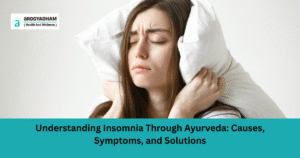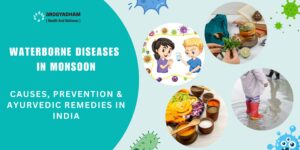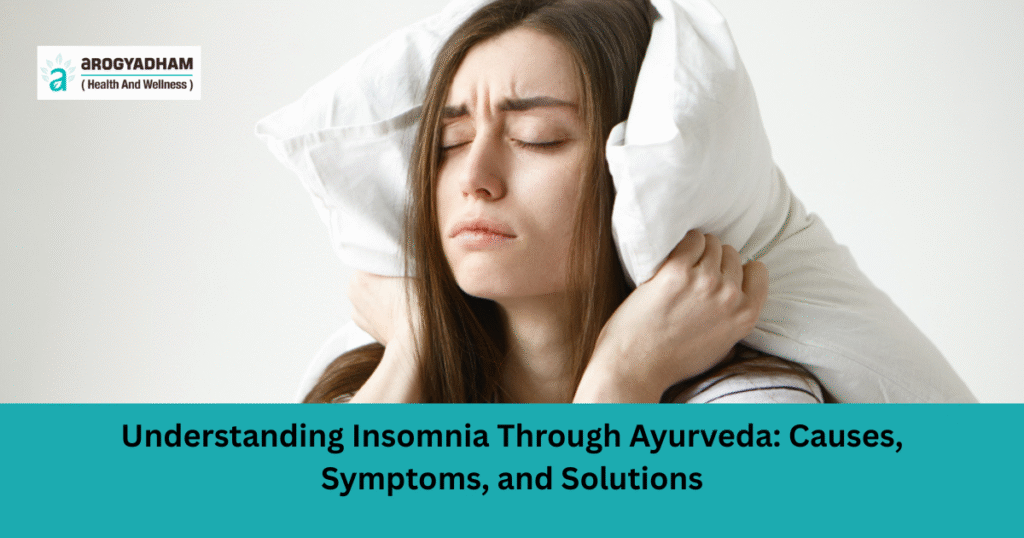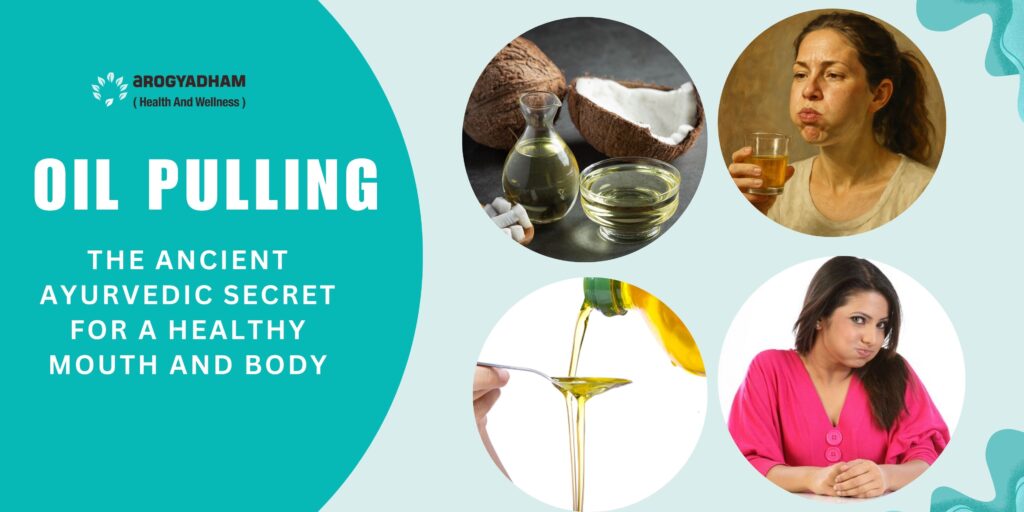Genital Warts Treatment – The Best Way To Cure It
- Home
- /
- Sexual Diseases
- /
- Genital Warts Treatment –...
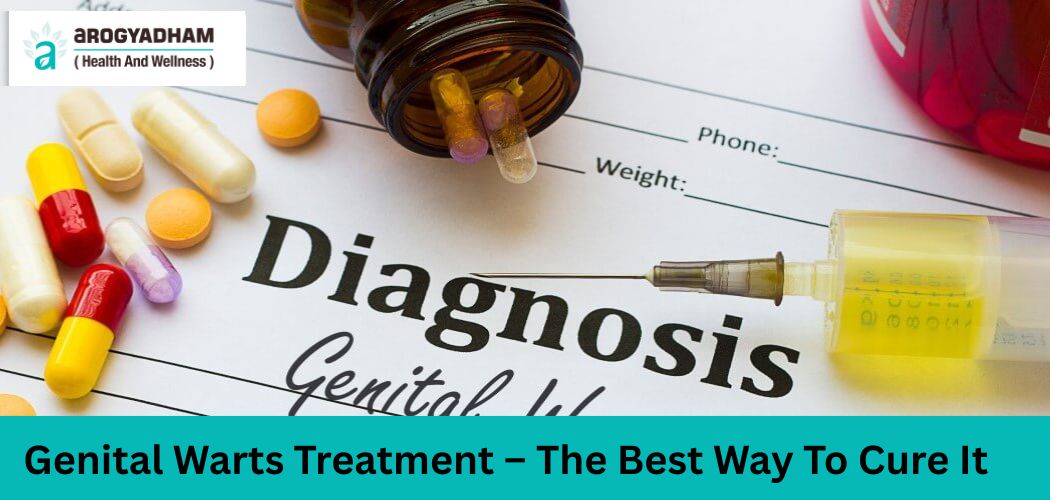
Genital warts occur due to HPV, or human papillomavirus, a viral infection. Also, it’s a sexually transmitted infection. It can spread via oral, anal, and vaginal sex, especially in a sexual relationship with a person infected with the virus. It’s also an HPV symptom that can be easily recognised. Genital warts treatment is available and often involves methods to remove or manage the warts, as well as strategies to address the underlying infection and reduce transmission risk.
The infection doesn’t affect the lifestyle but can sometimes be painful. It has more chances in females than in males. In both cases, the symptoms can differ based on the site of occurrence. In females, it can be on the vagina, cervix and vulva. Well, for men, it can be on the scrotum, penis and urethra. Apart from this, it can also be found on thighs, the area around the anus or inside the anus.

Genital warts treatment involves several approaches, depending on their size, number, and location. Options include topical medications that help remove warts by destroying infected skin, cryotherapy (freezing the warts), or laser treatments.
Genital warts are a common sexually transmitted infection (STI) caused by certain strains of the human papillomavirus (HPV). While they can be a source of discomfort and concern, effective treatment options are available, especially through Ayurvedic medicine. In this blog, we will explore the best ways to cure genital warts, focusing on Ayurvedic treatment for genital warts, including natural remedies, Ayurvedic medicines, and lifestyle changes. We’ll also discuss how to find the right Ayurvedic doctor for genital warts and provide a comprehensive FAQ section to address common concerns.
Genital Warts and Their Causes
Genital warts are soft growths that appear on the genital areas. Depending on their location and size, they can cause discomfort, itching, and pain. Genital warts are primarily caused by the human papillomavirus (HPV), particularly HPV-6 and HPV-11. These strains are considered low-risk types for cervical cancer but are highly contagious through sexual contact.
Symptoms and Diagnosis of Genital Warts
The symptoms of genital warts vary depending on their size and location. Common symptoms include:
- Small, flesh-coloured or grey swellings in the genital area.
- Several warts close together that take on a cauliflower-like shape.
- Itching or discomfort in the genital area.
- Bleeding with intercourse.
A healthcare provider usually performs a physical examination to diagnose genital warts. Sometimes, a biopsy might be needed to rule out other conditions.
Ayurvedic Treatment for Genital Warts
The Ayurvedic treatment for genital warts involves a combination of internal and external remedies, including herbal preparations, dietary changes, and lifestyle modifications. The goal is to balance the doshas, eliminate toxins, and strengthen the immune system to fight off HPV.
Herbal Genital Warts Remedies
- Neem (Azadirachta indica): Known for its antiviral and antibacterial properties, neem is effective in managing genital warts. Neem oil can be applied topically to reduce the size of warts and alleviate symptoms.
- Garlic (Allium sativum): Garlic has potent antiviral properties that help combat the HPV virus. Consuming raw garlic or applying garlic paste directly to the warts can be beneficial.
- Turmeric (Curcuma longa): Turmeric is an excellent anti-inflammatory and antiviral agent. Applying turmeric paste mixed with honey on warts can reduce their size and discomfort.
- Ashwagandha (Withania somnifera): Ashwagandha helps boost the immune system, which is crucial for fighting HPV infections. Regular consumption of ashwagandha powder or capsules is recommended.
- Apple Cider Vinegar: Although not an Ayurvedic remedy per se, apple cider vinegar is often used in conjunction with Ayurvedic treatments. It can be applied directly to warts to shrink them and eventually fall off.

Dietary Recommendations
- Eat a diet rich in fruits and vegetables: These provide essential vitamins and antioxidants that strengthen the immune system.
- Avoid spicy, oily, and processed foods: These can aggravate the doshas, especially Pitta, and contribute to the buildup of toxins.
- Include cooling foods: Such as cucumber, mint, and coriander, which help balance Pitta dosha.
Lifestyle Changes
- Yoga and Meditation: Regular practice of yoga and meditation helps reduce stress, which can exacerbate HPV symptoms. Yoga poses like Bhujangasana (Cobra Pose) and Shavasana (Corpse Pose) are particularly beneficial.
- Pranayama (Breathing Exercises): Techniques such as Anulom Vilom and Kapalbhati can help balance the body’s energies and improve overall health.
- Maintain Personal Hygiene: Keeping the genital area clean and dry is crucial to prevent the spread of the virus and secondary infections.
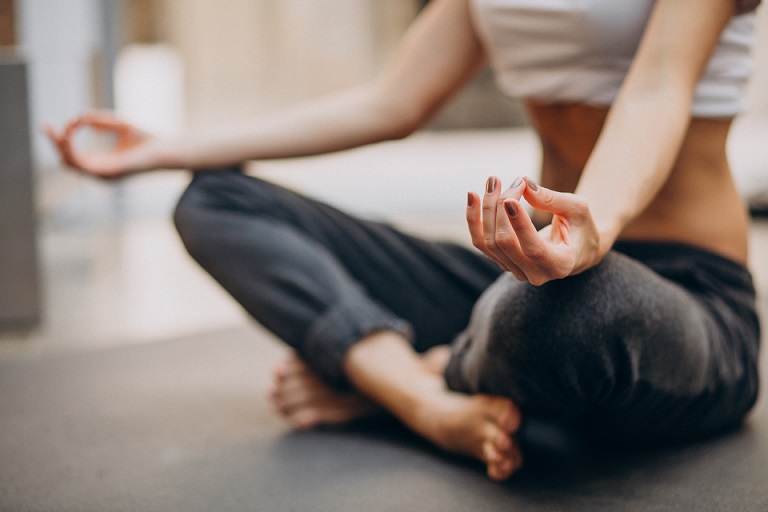
Conclusion
Genital warts can be challenging, but effective treatment is possible with the right approach. Ayurvedic treatment for genital warts offers a natural and holistic way to manage this condition by focusing on balancing the body’s doshas, eliminating toxins, and boosting immunity. By incorporating Ayurvedic medicines, dietary changes, and lifestyle practices, individuals can find relief from symptoms and prevent future outbreaks. If you are considering Ayurvedic treatment for genital warts, consult a qualified Ayurvedic doctor to develop a personalised genital warts treatment plan that suits your needs.
Also Read – Ayurvedic Treatment For Erectile Dysfunction!
FAQs on Genital Warts Treatment
1. What is the best Ayurvedic treatment for genital warts?
Ayurvedic treatment for genital warts includes a combination of herbal remedies, such as neem, garlic, and turmeric; dietary changes; and lifestyle practices like yoga and meditation. Consulting an experienced Ayurvedic doctor is essential for a personalised treatment plan.
2. Can Ayurvedic treatment prevent the recurrence of genital warts?
Yes, Ayurvedic treatment for genital warts focuses on strengthening the immune system and balancing the doshas, which helps prevent the recurrence of genital warts. Following a healthy diet, maintaining personal hygiene, and practising yoga can also help in prevention.
3. Who is at risk of developing genital warts?
Sexually active individuals, especially those with multiple sexual partners or those who do not use protection, are at a higher risk of developing genital warts. People with weakened immune systems, including those with HIV/AIDS or who are on immunosuppressive medications, are also at increased risk.
4. What are the symptoms of genital warts, and how can I identify them?
Genital warts often appear as small, flesh-coloured or grey swellings in the genital or anal area. They can be flat, raised, or shaped like a cauliflower and may cluster in large groups. Symptoms can also include itching, discomfort, or bleeding during intercourse. However, some people may have HPV and not show visible symptoms, making regular screenings important.
Ready to Heal Naturally?

Share With
Friends

Dr. Rakesh Agarwal, a third-generation Ayurveda expert and research scholar, treats chronic ailments through Ayurveda and Panchakarma. He is also the founder-editor of Arogyadham Magazine, promoting Ayurveda and wellness to over a million readers since 1992.

Dr. Arjun Raj, an Ayurvedic physician and wellness expert, is the Director of Arogyadham Health Care and serves on the executive board of Arogyadham Health and Wellness. He blends traditional Ayurveda with modern wellness to promote balanced, healthy living.

Dr. Amrit Raj, an Ayurvedic doctor and certified yoga teacher, is the Director of Arogyadham Health and Wellness. He specializes in chronic conditions and actively promotes Ayurveda and yoga worldwide for healthier living.

